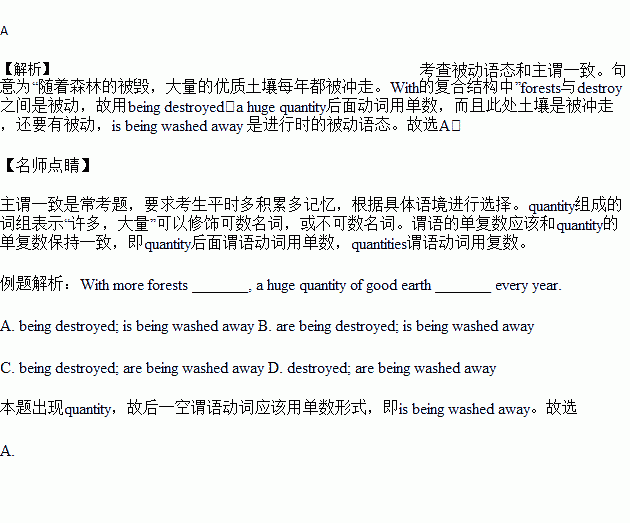题目内容
With more forests _______, a huge quantity of good earth _______ every year.
A. being destroyed; is being washed away B. are being destroyed; is being washed away
C. being destroyed; are being washed away D. destroyed; are being washed away
练习册系列答案
 名校课堂系列答案
名校课堂系列答案
相关题目


 eft C. crossed D. missed
eft C. crossed D. missed